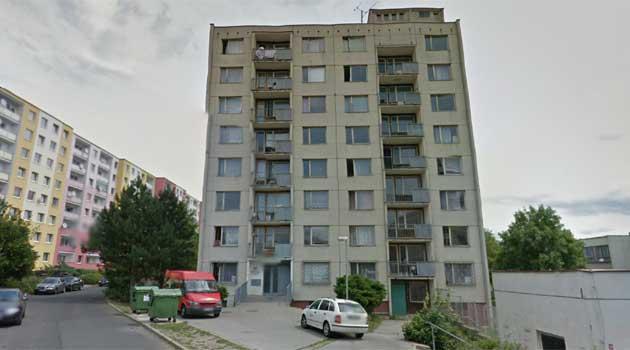Czech towns begin to "produce" hundreds of newly homeless people after law has potentially catastrophic effect

Reality has turned out differently than Czech Labor and Social Affairs Minister Michaela Marksová believed it might. "Most municipalities behave rationally, they know they cannot afford to create dozens or hundreds of homeless people," she said last week.
Ever since then, however, municipalities have begun full the "production" of dozens, hundreds and probably thousands of newly homeless people. An amendment to the law on aid to those in material distress has made this possible.
On the basis of this law, local authorities may grant their consent to the disbursal of housing benefits to people who have long been tenants of residential hotels – but they are not required to do so. Many municipalities do not intend to consent to this money going to these people for use in such facilities.
Hundreds of rejected applications
Several weeks ago, when the municipalities began reviewing the housing benefit applications, the proportion of rejections was overwhelming. In Bohumín the town councilors rejected all 124 applications.
The town hall’s argument was that they had "long condemned the residential hotel business". Elsewhere the arguments are more elaborate and run the full gamut.
The town of Aš, for example, does not want persons living in such facilities who "have no relationship to work" and wants to stop "inadaptable immigrants" (Chebský deník, 3.6.). In the town of Karviná authorities are demanding proof of permanent residency and that public order be maintained, while in some municipal departments of Ostrava they are requiring that the applicant not owe the local authority any money for unpaid obligations.
In the two centrally-located municipal departments of Ostrava, Moravská Ostrava and Přívoz, local authorities have neither approved nor rejected the applications, saying they have no information about the applicants (Právo, 3.6.). In Ostrava-Mariánské Hory no one will receive permission to use the benefits in such a facility because according to local Mayor Liana Janáčková a residential hotel is not "an appropriate environment for families with children" (Mf DNES, 2.6.).
We can link these arguments to the number of applications rejected so far, and even the "Solomonic" failure to either approve or reject applications will have the same impact in practice as an outright rejection will. The results so far: Bohumín 124, Ostrava-Mariánské Hory 600, Moravská Ostrava a Přívoz 247, Větřní 17, Aš 11, Karviná 15, Sokolov 26.
For the time being, only in those communities followed by the media, 1 040 potentially homeless persons have now been "produced". There are hundreds of more applications on local authorities’ desks which, according to the new criteria, probably won’t be approved.
In the municipal department of Ostrava-Jih alone there are 850 applications about which there is now speculation that they will be rejected across the board, which would mean the number of "new homeless" would then reach 2 000. According to the recent report released by the GAC company on socially excluded localities, there are 27 000 people in the Czech Republic who receive housing benefits to live in residential hotels with other family members.
The ministry is powerless
"During the cabinet session two weeks ago, and through the media, Czech Labor and Social Affairs Minister Michaela Marksová called on mayors not to make people homeless just because they don’t like this new rule. This approach must be tried out in practice, and if it turns out that this system doesn’t work, the minister is prepared, in collaboration with the Union of Towns and Municipalities, to design a new amendment to the law," Petr Habáň, spokesperson for the Labor and Social Affairs Minister, reminded news server Romea.cz yesterday.
According to Habáň, the sitation of those who do not receive the municipality’s consent to their receiving benefits decidedly should not be hopeless – this should not automatically mean these people will end up on the street. "Should the municipality reject the benefit application, there should be a social work option, particularly for families with children, to offer appropriate alternative accommodation or housing involving the use of social services, the nonprofit sector, the municipality’s housing stock, etc., to resolve these situations, including through the work of the Czech Labor Office," he said.
The spokesperson also admits that the ministry has no influence over the municipality’s decisions: "The Labor and Social Affairs Ministry, however, has no power to determine or recommend anything to the municipalities and is not even a methodological oversight body with respect to their performance of their independent powers." The law at issue was passed by Parliament after being proposed by Czech PM Zbyněk Stanjura (ODS).
It received 156 votes in favor out of 157 MPs present and 48 votes in favor out of the 50 Senators present. "I consider the adoption of that amendment to be a big failure on the part of Minister Marksová and I think she should correct it as soon as possible. In my opinion it is unacceptable to gamble with the fates of the thousands of children who are forced to live in residentialhotels," Štěpán Ripka of the Platform for Social Housing warned in March in an interview for news server Romea.cz.
"The solution is to adopt a new amendment, but that can’t be done by May," Ripka said. "That’s why the ministry should prepare a clear implementing regulation that will preclude the adults and children in the residential hotels from becoming at risk of their situations deteriorating."